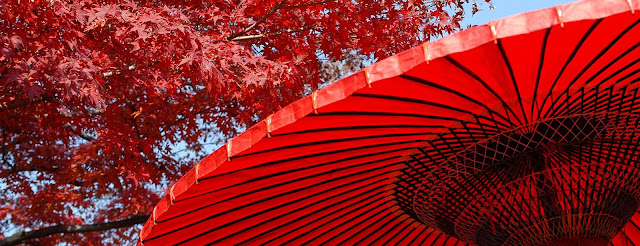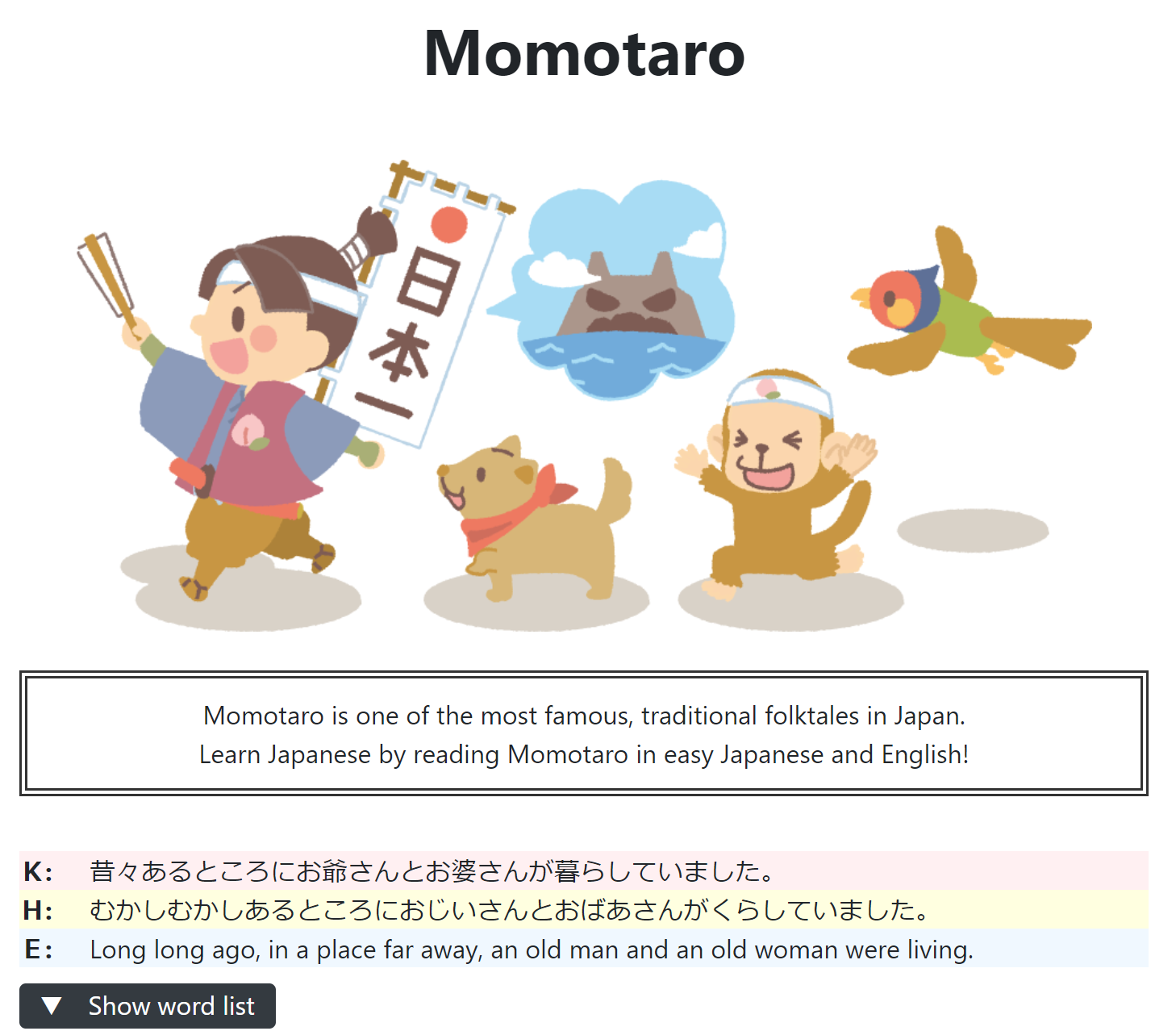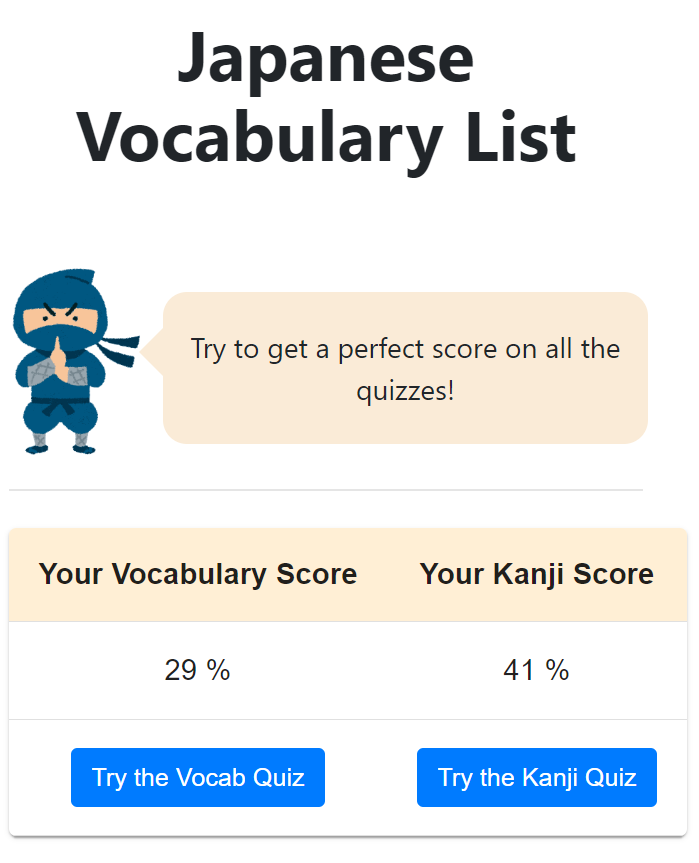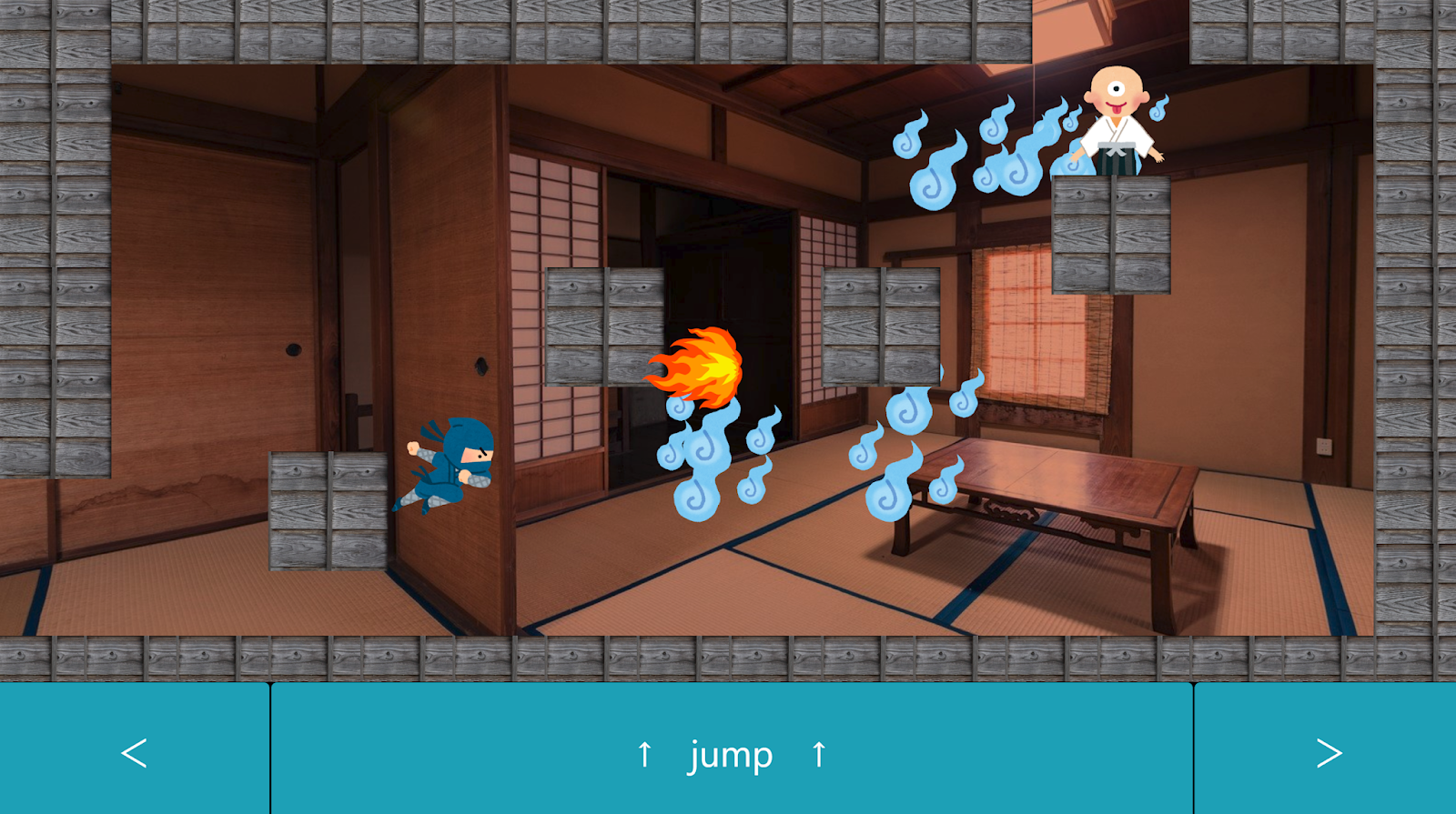I recommend you to check the video below before reading this article!
In this article, let's study how to say delicious, tasty, and yummy!
The word most commonly used is "Oishii".
In this article, let's learn how to use "Oishii"!
Also, let's check 10 other ways to say delicious in Japanese!
If you want to remember adjectives for JLPT N5 including "Oishii", please try this:
Japanese Vocabulary Quiz - JLPT N5 I-Adjectives >>
Below is the index of this article:
Index:
1. Summary of Oishii
2. How to use Oishii
2-1. Polite way to say
2-2. Past tense
3. Other ways to say delicious
3-1. Oishuu gozaimashita
3-2. Umai
3-3. Hoppe ga ochisou
3-4. Ikeru, Ikemasu
3-5. Zeppin
3-6. Kakubetsu
3-7. Tamaranai
3-8. Saikou
3-9. Yabai
3-10. Umasugite kotobamo denai
4. Greetings for dining
5. Conclusion
1. Summary of Oishii
2. How to use Oishii
2-1. Polite way to say
2-2. Past tense
3. Other ways to say delicious
3-1. Oishuu gozaimashita
3-2. Umai
3-3. Hoppe ga ochisou
3-4. Ikeru, Ikemasu
3-5. Zeppin
3-6. Kakubetsu
3-7. Tamaranai
3-8. Saikou
3-9. Yabai
3-10. Umasugite kotobamo denai
4. Greetings for dining
5. Conclusion
1. Summary of Oishii
"Oishii" is a Japanese adjective to say "tasty" or "delicious".
| Hiragana | Romaji | English | Kanji |
|---|---|---|---|
| おいしい | o i shi i | tasty, delicious | 美味しい |
Unlike delicious, Oishii is not as strong of an expression.
Maybe, "tasty" is a good translation for "Oishii".
If we write Oishii in Kanji, it's "美味しい".
The Kanji "美" means "beautiful".
"味" means "taste".
So "美味しい" includes the meaning of "beautiful taste".
Let's check how to use the adjective, Oishii!
2. How to use Oishii
2-1. Polite way to say
You can say "Oishii" while eating.
It means that you are eating something delicious.
However, just saying "Oishii" is not that polite.
If you want to say it politely, please use "desu"!
"Desu" is a word to make the sentence polite.
If you still don't know about "desu", please check this:
です(desu) >>
"おいしい(oishii)" is an i-adjective.
You can directly add "です(desu)" to the end of an i-adjective.
"おいしい(oishii)" + "です(desu)"
= おいしいです
So when you are eating, please say:
おいしいです。
o i shi i de su
Meaning: "It is delicious."
This sentence is in the present tense.
So it means what you are eating is delicious!
2-2. Past tense
When you make an i-adjective past tense, please follow the 3 steps below:
1. Remove "い(i)" from the adjective.
2. Add "かった(katta)" to the end of the i-adjective in order to make it past tense.
3. In addition to that, put "です(desu)" at the end in order to make it polite.
When we make "おいしい(oishii)" past tense:
1. Remove "い(i)" from the adjective.
おいしい -> おいし
oishii -> oishi
2. Add "かった(katta)" to the end of the i-adjective:
おいし -> おいしかった
oishi -> oishi katta
3. In addition to that, put "です(desu)" at the end:
おいしかった -> おいしかったです
oishi katta -> oishi katta desu
So, after you have eaten, please say:
おいしかったです。
o i shi ka t ta de su
Meaning: "It was delicious."
This sentence is in the past tense.
Also, this is polite because it includes "です(desu)".
After eating, please say this sentence to the cooks.
It will make them happy!
3. Other ways to say delicious
If you remember "おいしいです(oishii desu)" and "おいしかったです(oishikatta desu)", I think it's enough.
However, let's learn other ways to say delicious in order to use them properly!
3-1. Oishuu gozaimashita
If you want to say delicious very very politely, you can say "おいしゅうございました(oishuu gozaimashita)".
This is a very polite way to say delicious.
Even Japanese people don't use this so often.
If you say "おいしゅうございました(oishuu gozaimashita)" in front of Japanese people, they will think "Oh, this person is so polite!".
Maybe they will love you!
By the way, "おいしゅうございました(oishuu gozaimashita)" is past tense.
Please say this after eating!
3-2. Umai
"うまい(umai)" is a very casual way to say delicious in Japanese.
This is commonly used.
If the food is delicious, you can just say:
"うまい! (umai!)"
"うまい" is an i-adjective, as well as "おいしい(oishii)".
You can use it like this:
Polite way:
"うまいです"
Past tense:
"うまかった"
Polite past tense:
"うまかったです"
This is a very common way to say delicious in Japan.
You can use "うまい(umai)" when you eat with your friends!
However, it is kind of casual.
I don't recommend you to use this in a formal situation.
"おいしい(oishii)" is safer to use if you still haven't gotten use to Japanese!
3-3. Hoppe ga ochisou
Sometimes, Japanese people say "ほっぺがおちそう(hoppe ga ochisou)" when they eat delicious meals.
It is one way to say:
"This is so delicious."
"ほっぺ(hoppe)" means "cheek".
"おちそう(ochisou)" means "almost falling down".
If you don't know "が", please check this:
は(wa) and が(ga) >>
So "ほっぺがおちそう(hoppe ga ochisou)" means:
"My cheek is almost falling down."
Of course, the person's cheek doesn't really fall.
This is a Japanese figurative expression.
While chewing delicious food, sometimes they say this in order to express how delicious the food is.
3-4. Ikeru, Ikemasu
"いけます(ikemasu)" is a polite way to say "いける(ikeru)".
If you want to know about "ます(masu)", please check this:
ます(masu) >>
"いける(ikeru)" and "いけます(ikemasu)" sometimes mean tasty, too.
However, the situation to use this is limited.
Actually, it includes the meaning of "surprisingly".
For example, if your Japanese friend recommends you to add milk to your ramen.
At first, you would think it is strange.
However, if it is surprisingly delicious , you can say:
"いける! (ikeru!)"
It means it is delicious, even though you weren't sure if it would be delicious before eating it.
If the food is surprisingly tasty, please use "いける(ikeru)".
3-5. Zeppin
"ぜっぴん(zeppin)" is a noun to express very delicious food.
You will see this word in Japanese food advertisements.
"絶品" is the Kanji for "ぜっぴん(zeppin)".
"絶" is used to explain wonderful things, like a very beautiful view or the best opportunity.
"品" means an "item" or a "thing".
So "ぜっぴん(zeppin)" means "wonderful thing".
However, "ぜっぴん(zeppin)" is only used for food.
If you see an advertisement which says "zeppin ramen", it means the ramen must be very delicious.
At least, the advertisement is saying so...
3-6. Kakubetsu
"かくべつ(kakubetsu)" means "special".
Sometimes, it is used to say "more delicious than any other things".
Or if food or a drink is very nice during, or after a particular situation, you can use this word, "かくべつ(kakubetsu)".
Examples:
1. ふろあがりのぎゅうにゅうはかくべつだ。
fu to a ga ri no gyu u nyu u wa ka ku be tsu da
Meaning: "Milk after taking a bath is better than any other thing."
ふろあがり: after bath
ぎゅうにゅう: milk
2. しごとおわりのビールはかくべつだ。
shi go to o wa ri no bi ru wa ka ku be tsu da
Meaning: "Beer after working is better than any other thing."
しごとおわりの: after working
ビール: beer
If you don't know the Katakana characters for beer, please check this:
Katakana >>
3.きみがいれてくれたコーヒーはかくべつだ。
ki mi ga i re te ku re ta ko hi wa ka ku be tsu da
Meaning: "Coffee served by you is better than any other thing."
きみがいれてくれた: served by you
コーヒー: coffee
Like above, if the food or drink is so delicious under a particular situation, please use "かくべつ(kakubetsu)".
3-7. Tamaranai
"たまらない(tamaranai)" is very strong way to say delicious.
If this word is used for food, it means "irresistible", "tremendous", or "out of this world".
Actually, "たまらない(tamaranai)" could also mean "cannot stand" or "unbearable".
The usage of "たまらない(tamaranai)" could include a negative meaning.
However, if you say "たまらない(tamaranai)" while eating delicious food, it means:
This food is too delicious to bear.
So it means the food is so delicious.
If you say "たまらないです(tamaranai desu)" during eating, it means you love that food.
So the cook will be so glad!
3-8. Saikou
"さいこう(saikou)" means "the best".
If you say "さいこうです(saikou desu)" during eating, it means you have the best feeling ever because of the food.
It means "this food is so delicious".
"さいこう(saikou)" is not only for food or drinks.
It just means that you feel so nice.
The thing that is nice depends on the situation.
If you say "さいこう(saikou)" during taking a bath, it means the bath is very nice.
If you shout "さいこう(saikou)" during a party, it means you are enjoying the party.
"さいこうです(saikou desu)" is more polite than saying just "さいこう(saikou)".
When you are having the best feeling ever, please use the word, "さいこう(saikou)".
3-9. Yabai
When you talk with young Japanese people, you will probably often hear this word.
This slang is used by young people in Japan.
Basically, "やばい(yabai)" means dangerous, risky, awful, or terrible.
However, it can also mean terrific, amazing, or cool.
As slang, Japanese high school students use this word for everything.
Today, "やばい(yabai)" just means "not normal".
So when they eat, if the food is more tasty than normal, "やばい(yabai)" is easily used .
By the way, "やばい(yabai)" is also an i-adjective, as well as "おいしい(oishii)" and "うまい(umai)".
So you can use like below:
Polite way:
"やばいです"
Past tense:
"やばかった"
Polite past tense:
"やばかったです"
However, "やばい(yabai)" is a not so polite or formal word.
Even if you use "です(desu)", it doesn't sound so formal...
So maybe you don't need to use this word in a formal situation!
3-10. Umasugite kotobamo denai
This is not a word, but a sentence.
うますぎてことばもでない。
u ma su gi te ko to ba mo de na i
Meaning: "It is too delicious to say anything."
うますぎて: too delicious
ことばもでない: can't say anything
If the food is so delicious, and if you can't find any word to explain it, please say:
うますぎてことばもでない。
u ma su gi te ko to ba mo de na i
But please be noted that "うますぎて(umasugite)" is not a polite way to speak! hehe
4. Greetings for dining
From this article, I think you have already remembered how to say delicious in Japanese.
However, if you eat something in Japan, there is a manner you had better follow.
There are greetings to say before and after eating.
Before eating, please say:
いただきます
i ta da ki ma su
After eating, please say:
ごちそうさまでした
go chi so u sa ma de shi ta
I explained about them in a different article.
If you want to know further details about them, please check these:
8 unique Japanese greetings:
いただきます >>
ごちそうさまでした >>
5. Conclusion
Before eating, please say:
いただきます。
i ta da ki ma su
During eating, if the food is delicious, please say:
おいしいです。
o i shi i de su
After eating, please say:
おいしいかったです。
o i shi ka t ta de su
ごちそうさまでした。
go chi so u sa ma de shi ta
If you want to use other words to say delicious, please remember these:
1. Oishuu gozaimashita
2. Umai
3. Hoppe ga ochisou
4. Ikeru, Ikemasu
5. Zeppin
6. Kakubetsu
7. Tamaranai
8. Saikou
9. Yabai
10. Umasugite kotobamo denai
If you remember them, I think it's enough!
Please have confidence and go to Japan to eat Sushi and Ramen!
If you want to remember adjectives for JLPT N5 including "Oishii", please try this:
Japanese Vocabulary Quiz - JLPT N5 I-Adjectives >>
If you want to learn Japanese vocabulary about food, please check this video!
I hope this article helps you to study Japanese!
Please enjoy studying Japanese!
Related articles:
8 unique Japanese greetings >>
Japlish - Eat a Pee Man!? >>
Yoisho - Japanese Interjections >>
Light and Dark in Japanese >>
Hot and Cold in Japanese >>
Fast and Slow in Japanese >>
Tall and Short in Japanese >>
Beautiful and Clean in Japanese >>
8 unique Japanese greetings >>
Japlish - Eat a Pee Man!? >>
Yoisho - Japanese Interjections >>
Light and Dark in Japanese >>
Hot and Cold in Japanese >>
Fast and Slow in Japanese >>
Tall and Short in Japanese >>
Beautiful and Clean in Japanese >>




































No comments:
Post a Comment